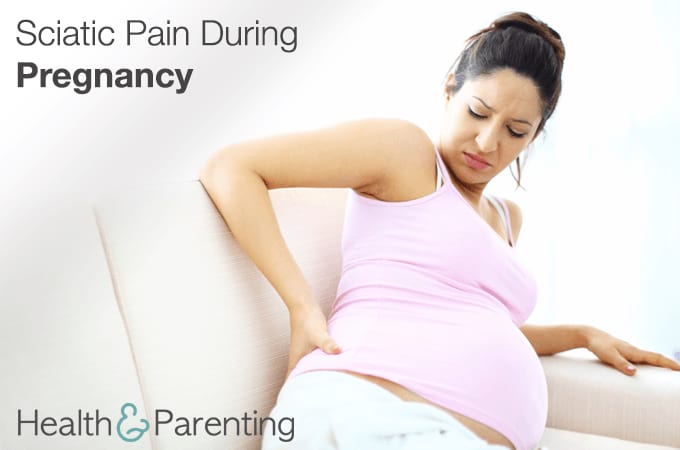Ouch! My aching back. Will the pain EVER end?
The good news is that it will. The bad news is it might not let up completely until after your baby is born.
Back pain and pregnancy go hand in hand. For one thing, all that extra weight on the front side of your body puts an excess amount of pressure on your lower back (lumbar region). And, surges in hormones, the production of extra fluid which can make you swell and can cause pressure – and did we mention hormones – make back pain a typical and expected part of pregnancy. Making matters worse, if your back and abdominal muscles were not in optimal shape (and whose are?) prior to pregnancy, the stress on your core can make back pain even worse.
Interestingly, true sciatica, caused by bulged or damaged discs in the spine only affects around 1% of all pregnancies. However, most people describe sciatic pain as pain that leaves the lower lumbar back and pulses down the long sciatic nerve into the buttocks, thighs, calves, feet and even toes. Often times, extra fluid and swelling during pregnancy can put pressure on this large nerve, and you may notice that your legs and feet go numb more often than before pregnancy. Inflammation caused by the weight of the baby pressing on the sciatic nerve can also cause bouts of sciatic pain. Some women, even experience tingling or numbness in the groin area. In very extreme cases that involve the sciatic nerve, you can experience difficultly urinating or defecating.
So what can you do about it? One of the most important things to help ease back pain is to stay mobile as much as possible. Taking a walk, signing up for a prenatal yoga class, stretching (safely), and drinking plenty of fluids can help. If the pain definitely seems to stem from your sciatic nerve, and runs long distances down your body – then scheduling a pregnancy massage with a licensed pre-natal therapist can be very beneficial. During the night, try to sleep on your left side, using pillows to support your belly – and try not to stay in a sedentary position for too long. If you work at a desk during the day, try to get up at least once every hour.
Most often, a true treatment for sciatic pain during pregnancy does not exist. It will likely come and go, depending on your fluid retention and the position of your uterus. While its definitely painful and frustrating, you shouldn’t take over-the-counter pain relievers for the pain unless you check with your provider. The same goes for using heating pads. In some instances, if you know the source of the pain, applying ice packs for short intervals can reduce inflammation.
Certainly, this is not the answer that you wanted to hear! The good news is that once you have your baby, your back and sciatic pain will be reduced. In other words, this is typically a short term condition caused by pregnancy.
Written By Stef, Mom of 4 @Momspirational
This information is not intended to replace the advice of a trained medical doctor. Health & Parenting Ltd disclaims any liability for the decisions you make based on this information, which is provided to you on a general information basis only and not as a substitute for personalized medical advice. All contents copyright © Health & Parenting Ltd 2017. All rights reserved.










